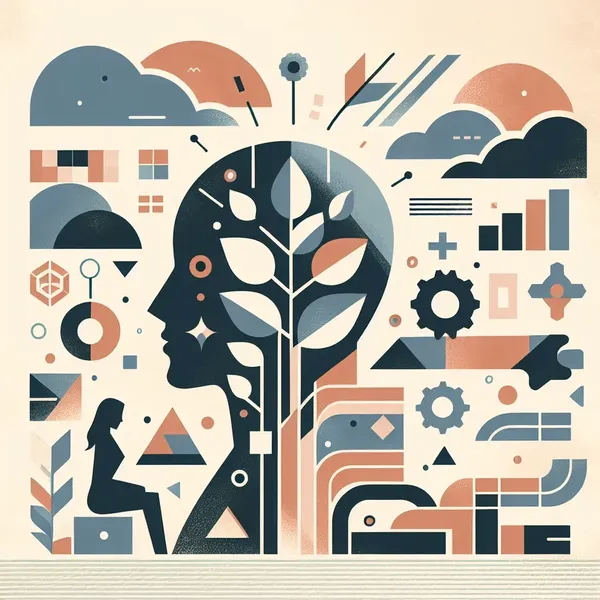
Ready to Start Your Wellness Journey?
Become a Herbalife Preferred Member and enjoy exclusive discounts of up to 25% on all products.
BECOME A PREFERRED MEMBEREmotional Strength: Build Resilience for Personal Success
In today's fast-paced and challenging world, emotional strength has emerged as a crucial skill for personal and professional success. Emotional strength, characterized by resilience, emotional intelligence, and mental toughness, empowers you to face setbacks with confidence, maintain balance under pressure, and communicate effectively in any environment. Developing emotional strength not only enhances your personal well-being but also boosts career development, improves relationships, and cultivates an innovation mindset. In this guide, you'll discover the history, practical tools, real-world examples, and scientific research that reinforce the importance of this trait—leading to a life filled with purpose, satisfaction, and positive social impact.
Understanding Emotional Strength
Historical Context of Emotional Strength
Since ancient times, philosophers and leaders have recognized emotional strength as a pivotal factor in personal growth and societal harmony. Stoic philosophers like Marcus Aurelius championed the benefits of emotional self-control, mindfulness, and mental toughness. Centuries later, psychologist Daniel Goleman introduced the concept of emotional intelligence, transforming our understanding of emotions into a practical skill set. His groundbreaking book, "Emotional Intelligence: Why It Can Matter More Than IQ," underscores how managing emotions impacts productivity, relationships, and overall happiness.
Current Relevance in Daily Life and Work
In our hyper-connected digital age, information overload and constant demands on attention heighten stress and anxiety. Emotional strength becomes essential to navigate this landscape effectively. Emotional intelligence allows leaders to foster empathy, communicate clearly, and resolve conflicts amicably. Mindfulness practices reduce burnout, increase productivity, and enhance decision-making capabilities—making emotional strength a pivotal attribute across corporate environments, startups, and remote leadership roles alike.
Practical Application of Emotional Strength
Step-by-Step Guide to Building Emotional Strength
Developing emotional resilience isn't complicated; it requires deliberate practice and consistent effort. Follow these practical steps:
• Practice Mindfulness: Set aside 10-15 minutes daily for mindfulness meditation, deep breathing, or mindful journaling to foster emotional clarity and reduce stress.
• Enhance Emotional Intelligence: Commit to actively listening, observing non-verbal cues, and empathizing to build stronger relationships and effective communication skills.
• Cultivate Healthy Habits: Prioritize healthy sleep routines, regular exercise, and mindful eating, as emotional wellness starts with physical wellness.
• Create Positive Habits: Develop routines around goal setting, prioritization, and productivity, strengthening your self-discipline and inner resolve.
Overcoming Common Challenges
Despite clear benefits, implementing emotional strength practices may pose difficulties.
• Lack of Motivation: Keep clear goals in mind, visualize outcomes, and create a system of regular small rewards to maintain motivation.
• Resistance to Change: Slowly integrate new habits by pairing them with existing daily rituals until they become automatic.
• Negative Self-Talk: Recognize and challenge inner criticism systematically by reframing negative thoughts into constructive, realistic affirmations.
Success Stories of Emotional Strength
Real-World Case Studies
Emotional strength's impact spans sectors, industries, and backgrounds. Consider Oprah Winfrey, who overcame severe childhood adversity with resilience, emotional intelligence, and self-awareness, eventually becoming a globally influential leader and advocate. Another striking example is business magnate Elon Musk, whose unwavering emotional resolve and mental toughness allowed him to manage innovation amid constant criticism, setbacks, and pressure.
Lessons Learned
These stories reflect key lessons supporting emotional strength:
• Resilient individuals consistently overcome setbacks because they view failures as critical opportunities for growth.
• Developing self-awareness and empathy exponentially increases both leadership and relationship-building effectiveness.
• Successful innovators leverage emotional strength to remain focused, adaptable, and effective amid uncertainty and complexity.
Scientific Backing of Emotional Strength
Research Findings
Recent studies in psychology and neuroscience provide significant evidence for emotional strength's positive impact. Research from the Harvard Business Review shows emotionally intelligent leaders foster greater team building, employee engagement, and overall organizational performance. Neuroscience research corroborates that mindfulness and emotional regulation physically alter the brain structure, enhancing cognitive flexibility, decision-making, mental toughness, and stress resilience.
Expert Opinions
Dr. Brené Brown, a well-respected researcher on emotions and human behavior, echoes these findings, noting that emotional resilience is built through vulnerability, self-compassion, and risk-taking. Her insights reaffirm emotional strength's criticality in achieving life purpose, effective leadership, and meaningful relationships.
Action Plan to Develop Emotional Strength
Implementation Strategies
Integrating emotional strength into daily practice involves clear strategies:
• Schedule mindful practices into your daily routine, reinforcing emotional self-awareness and mental balance.
• Regularly engage in reflection, journaling, or conversations that consciously strengthen empathy and interpersonal skills.
• Leverage productivity and time-management tools to build habits and routines, creating efficiency and reducing emotional fatigue.
Measuring Your Progress
Tracking your emotional strength development ensures sustainable growth. Keep a weekly or monthly journal assessing your emotional responses, stress management, and communication effectiveness. Seek constructive feedback from peers, mentors, or coaching professionals periodically. Healthy metrics such as improved sleep patterns, reduced anxiety levels, and increased resilience during setbacks can objectively represent progress.
Conclusion
Emotional strength is not a passive trait but rather an essential skill you actively nurture. By connecting mindfulness, emotional intelligence, personal development, and resilience building, you enrich your career, relationships, and overall quality of life. As Goleman's insights illustrate, emotional strength underpins success across domains—cultural, professional, or personal. Embracing proven strategies, measurement practices, and expert-backed techniques outlined in this article allows you to continually enhance emotional resilience and fulfill your highest potential.
"Emotional Intelligence: Why It Can Matter More Than IQ," by Daniel Goleman, offers invaluable insights to deepen your understanding and enhance your emotional strength journey.
Ready to Start Your Wellness Journey?
Become a Herbalife Preferred Member and enjoy exclusive discounts of up to 25% on all products.
BECOME A PREFERRED MEMBER